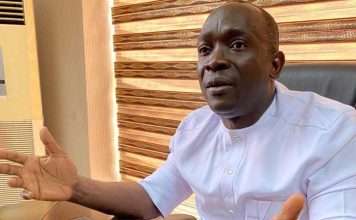Following the current economic conditions, such by high inflation, elevated interest rates, increased business expenses, higher electricity tariffs, and rising petrol costs, Mr Adewale-Smatt Oyerinde, the Director-General of the Nigeria Employers’ Consultative Association, said it a challenging time to negotiate the minimum wage and see into it.
Speaking in Lagos on Monday, Oyerinde noted, “The minimum wage committee have not reconvened to harmonise that figure and send it to the President. As of now, the President has absolutely nothing to approve.
“If the President will announce anything on May 1, is probably something for the federal workers but he cannot announce it on behalf of the private sector because no negotiations have gone in place.”
Oyerinde said, there is a structured process for establishing the minimum wage.
“According to Convention 103 of the International Labour Organisation, certain essential factors, such as labour, social partners, employers, and government must be involved, and their input considered during negotiations. The Minimum Wage Committee will then present its recommendations for approval, amendment, or rejection by the president.
“Now, the point where we are currently is that everybody has submitted their recommendations to the committee. Employers, labour, the governor’s forum, and every stakeholder have submitted their recommendations based on evidenced parameters,” he stated.
He further explained that, once the president agrees, he sends the figure as a bill to the National Assembly, and the National Assembly will look at it, have a hearing on it, and pass it into law.
Oyerinde stated that despite those conflicting variables, the negotiation process must continue and run its course.
“These are the parameters for reaching this point, and we are eager for negotiations to start. We trust the government will prioritise key issues like wages, food security, transportation, and housing. By introducing CNG buses and lowering transport costs, regardless of fuel prices, they can significantly ease the burden on Nigerians,” Oyerinde declared.
The government need to focus on ensuring the sustainability of enterprises.
“If interest rates keep rising, businesses will face higher expenses due to increased interest costs, leading to a rise in the overall cost of doing business and contributing to inflation,” he mentioned.
The NERC boss stressed the need for the government to balance all aspects comprehensively, adding that alongside the minimum wage, it must prioritise maintaining enterprise sustainability to ensure businesses remain competitive and viable.
